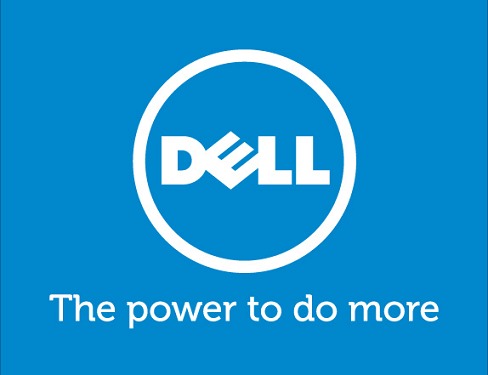What VCs Look for in a Startup: Insights from Top Investors
As a startup founder, you’re likely no stranger to the thrill of pitching your business idea to potential investors. But have you ever wondered what goes through the minds of venture capitalists (VCs) when they’re evaluating your proposal? What are the key factors that make them greenlight or redlight your project?
To get inside the heads of top VCs, we’ve gathered insights from some of the most influential players in the industry. From the importance of team dynamics to the role of market size and competition, we’ll dive into the nitty-gritty details of what VCs look for in a startup.
The Team: Your Startup’s Greatest Asset
When it comes to investing in startups, VCs often say that the team is the most critical factor. After all, even the best idea can fall flat without the right people to execute it.
“It’s not just about having smart people on your team,” says Neil Sequeira, co-founder and managing director of Defy Partners, a VC firm focused on early-stage investments. “It’s about having people who are passionate about solving the problem you’re trying to solve.”
Sequeira emphasizes that VCs want to see a clear division of labor within the founding team. “Ideally, you want a strong technical co-founder and a strong business co-founder,” he explains. “Someone who understands how to build the product and someone who understands how to sell it and run the business.”
David Cohen, founder and CEO of Techstars, a leading startup accelerator program, echoes this sentiment: “We look for founders with deep domain expertise and a proven track record of execution.” He highlights that this expertise can be demonstrated through various means, such as prior entrepreneurial experience or relevant work history.
Market Size and Competition: Is There Room to Grow?
While having a great team is crucial, it’s equally important to demonstrate a clear understanding of your market. This includes both the size of the market and the competitive landscape.
“We look for markets that are large enough to support a big exit,” says Peter Sonsini, executive director at Light Speed Venture Partners, a VC firm focused on early-stage investments in the technology sector. “But we also want to see barriers to entry that will prevent new competitors from flooding into the market.”
Sonsini emphasizes that VCs aren’t just looking for markets with huge potential; they’re also considering how hard it would be for someone else to replicate your business model.
“Competition is actually a good thing,” adds Cohen. “It shows there’s demand in the market, but you need to demonstrate how you’ll differentiate yourself and win share.”
Traction and Milestones: Show Us Your Progress
As any seasoned entrepreneur will tell you, traction matters. VCs want to see that your startup has made tangible progress toward its goals.
“Traction can take many forms,” says Ambarish Mitra, partner at 3one4 Capital, an early-stage VC firm focused on technology investments in India and Southeast Asia. “It could be revenue growth, user acquisition, or even just a strong pipeline of customers.”
Mitra stresses that the key is to demonstrate consistent momentum: “We want to see that you’re moving forward incrementally every quarter. That shows us you have a solid plan and are executing on it effectively.”
Financial Projections: Don’t Get Too Fancy
Ah, financial projections – a necessary evil for any startup seeking funding. While VCs do care about your projected revenue and expenses, they’re not looking for overly optimistic (or pessimistic) forecasts.
“We want to see that you’ve thought through the unit economics of your business,” says Sonsini. “That means demonstrating an understanding of how much it costs to acquire a customer and serve them versus how much revenue they bring in.”
Sonsini advises against inflating projections or making unrealistic assumptions: “We’re not looking for perfection, but we want to see that you’ve put in the effort to understand your business model and made reasonable estimates based on industry benchmarks.”
The Pitch: Show Us Your Passion (and Data)
Finally, it all comes down to the pitch – that moment when you get to tell your story and showcase your startup to potential investors.
“We want to see passion, conviction, and a clear vision for your business,” says Cohen. “But we also want to see data – metrics that demonstrate traction and progress toward your goals.”
Cohen emphasizes that this isn’t just about regurgitating numbers; it’s about telling a story with those numbers: “We want to see how you’re using data to inform your decisions, iterate on your product or service, and drive growth in your business.”
Conclusion
Securing funding from top VCs is never easy, but by understanding what they look for in a startup, you can increase your chances of success. Remember that it’s all about demonstrating a strong team, a clear grasp of your market, tangible traction, realistic financial projections, and a compelling pitch that showcases both passion and data.
As you prepare to take the leap and pitch your business idea, keep these insights from top VCs in mind:
- Build a well-rounded founding team with diverse expertise
- Demonstrate a deep understanding of your market size and competitive landscape
- Show consistent traction toward your goals through milestones and metrics
- Make realistic financial projections based on industry benchmarks
- Craft a compelling pitch that balances passion with data-driven storytelling
By following these guidelines, you’ll be well-equipped to capture the attention (and investment) of top VCs in the startup ecosystem.











